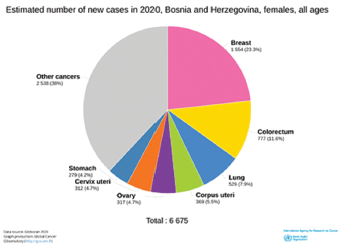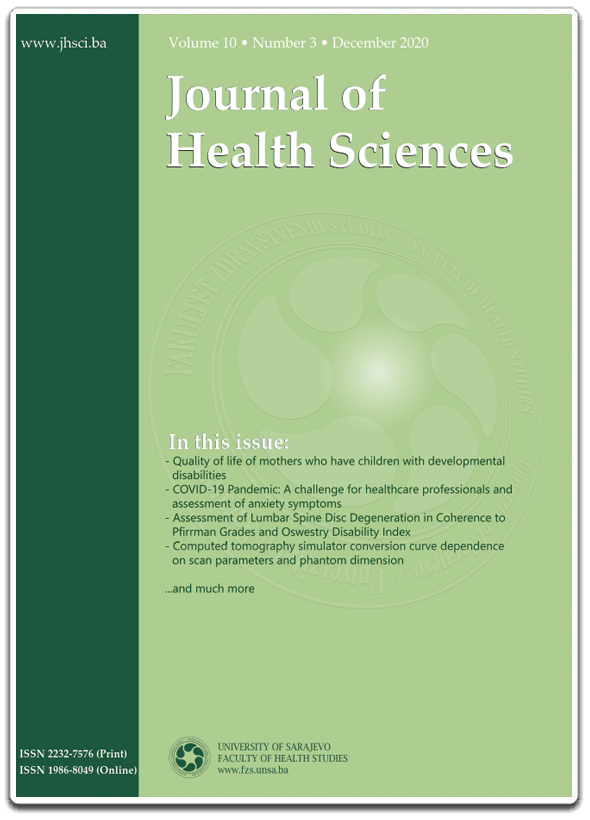RS17817449 FTO gene variation associated with familial disease burden rather than individual risk for breast cancer
DOI:
https://doi.org/10.17532/jhsci.2023.2164Keywords:
FTO, single-nucleotide polymorphism rs17817449, breast cancer, risk, body mass index, obesityAbstract
Introduction: Breast cancer (BC) is the most common malignancy in the female population globally. Obesity is associated with an increased risk of postmenopausal BC, BC recurrence, and mortality. Fat mass and obesity-associated (FTO) gene polymorphisms have attracted the most attention due to several single-nucleotide polymorphisms (SNPs) that may have an impact on obesity and different types of cancer. The primary goal of our work was to assess the association of the SNP rs17817449 FTO, physical status/metabolic changes, and dietary habits with the occurrence of BC.
Methods: We conducted research as a population-genetic study including 93 women with a diagnosis of BC during their lifetime. Genomic DNA was extracted from the swabs of the buccal mucosa. Genotyping was achieved by polymerase chain reaction-restriction fragment length polymorphism. The IBM SPSS Statistics program v. 23.0 was used for statistical analysis. All values of p < 0.05 were considered statistically significant.
Results: The risk genotype of the FTO gene (rs17817449) GG was detected in 16 subjects (17.2%), the heterozygous TG in 46 subjects (49.5%), while the normal genotype TT was recorded in 29 subjects (31.2%). We found no statistically significant difference in the body mass index values of the three genotype groups, p = 0.72, χ2 = 2.1 and no significant relationship between the allelic or genotypic frequencies of the rs17817449 FTO gene polymorphism and other variables examined in our study. Analysis of the distribution of hereditary diseases in the family according to the molecular subtype of BC showed statistically significant p-values, p = 0.02.
Conclusion: While previous research has suggested a potential link between FTO gene polymorphism, obesity, and BC, our study did not find a statistically significant association between the aforementioned variables. Future studies with a larger number of subjects in different populations should confirm the role of the FTO genotype in the risk of BC.
Downloads

Downloads
Published
License
Copyright (c) 2023 Berisa Hasanbegović, Belmina Sarić Medić, Emir Sokolović, Nikolina Tomić, Lejla Pojskić

This work is licensed under a Creative Commons Attribution 4.0 International License.










